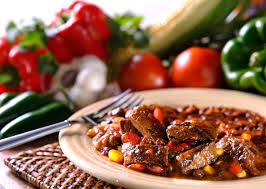


Our diet has a huge effect on our brain and our mental wellbeing, even protecting against dementia. So, what should be on the menu?
As a society, we are used to the idea that we feed our bodies, and that our diet shapes our waistlines. But many of us forget that the same diet also feeds our brains and that the food we give our brains shapes our thoughts and actions. I invested many years formally studying neuroscience and neurology, and have spent many more years as a scientist in those fields. Back when I started, most of my time was spent with medical journals. But 15 years into my research, much of my time is spent with cookbooks.
Buy Foods That Can Help and Harm Your Brain
These books are essential to contemporary brain science. The recipes become food, and that food shapes our brains just as surely as it builds our bodies. Day after day, the foods we eat are broken down into nutrients, taken into the bloodstream and carried up into the brain. Once there, they replenish depleted storage, activate cellular reactions and become the very fabric of our brains.
So, what does this mean for your daily menu in terms of optimising for brain health? It means lots of the following:
A specific kind of fats called polyunsaturated long-chain fatty acids, such as the famous omega-3s. Fatty fish, such as salmon, mackerel, anchovies and sardines, is the best natural source of the only kind of fat the brain needs throughout a lifetime. Where fish isn’t an option, flax and chia seeds are good alternatives.
A specific kind of carbohydrate called glucose. Glucose is the only energy source for the brain, so its crucial that the brain gets enough of it. Foods that are naturally rich in glucose and that at the same time contain enough fibre to stabilise your blood-sugar levels are beetroot, kiwi fruit, whole grains, sweet potatoes, onions and spring onions. Raw honey, maple syrup and coconut sugar are also good sources.
All sorts of vitamins and minerals, especially those with antioxidant effects such as vitamin A, vitamin C, vitamin E and selenium but also iron, copper and zinc. Fruit and vegetables are the best natural source of these: go for berries, oranges, grapefruit and apples, which are sweet but have a low glycemic index. Leafy green or cruciferous vegetables (broccoli, cabbage, spinach, kale, dandelion greens), as well as other vegetables such as onions, carrots, tomatoes or squash, are also full of vitamins, minerals, fibre and disease-fighting nutrients that are needed for a healthy nervous system. Make every meal a rainbow.
At the same time, some foods are a big no-no. These include fast food, fried food such as fish and chips, fatty foods such as red meat, pork and high-fat dairy, and, most of all, processed foods: baked goods loaded with trans fats and refined sugar such as cakes, biscuits, crisps, ready meals and frozen pizza, as well as many snacks. Then there are all of the margarine and commercial cheeses, along with other spreadable or creamy products. Ditto for processed meats such as salami, bologna and frankfurters. The more of these processed foods you consume on a regular basis, the higher your risk of cognitive decline and dementia. Across multiple studies, people who consumed as little as 2g a day of trans fats had twice the risk of those who ate less than 2g. It’s disheartening to discover that most people in those studies ate at least 2g a day, with the majority of participants eating more than double that dose on a regular basis.
The human brain has evolved over millions of years to absorb specific nutrients and to function on a relatively specific diet. Now our society must also evolve, to attend to what our brains need to be fed. On a personal level, that’s for anyone pursuing a long life and a youthful brain to enjoy it. On a global level, that is millions of people who will have a chance to age gracefully with their mental capacities intact.
Here’s a related video you might also like:
[youtube https://www.youtube.com/watch?v=AhfW-4ulolk?rel=0&controls=0]